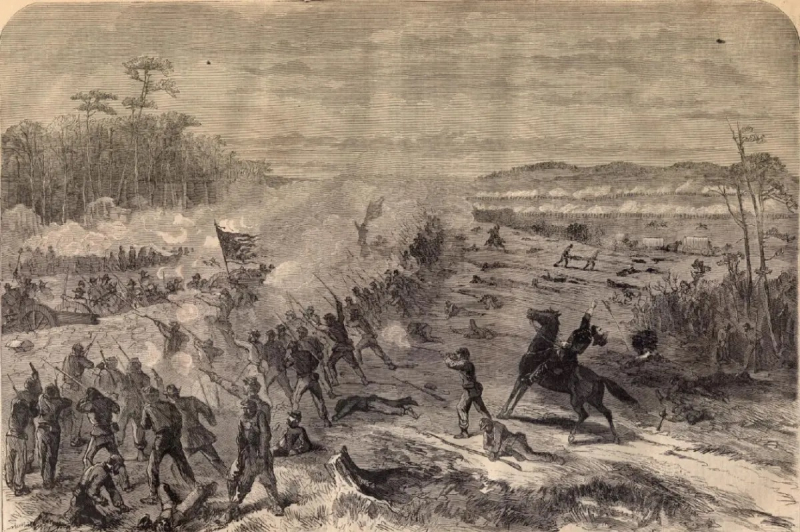The missed opportunities at Spring Hill played an important role in the Battle of Franklin
John McAllister Schofield (September 29, 1831 – March 4, 1906) was an American soldier who held major commands during the American Civil War. He took an important role in the Battle of Franklin. At Columbia, Tennessee, he had prevented Hood from crossing the Duck River for five days. When Confederates began to assemble for battle on the southern bank of the Duck on the 29th, Schofield felt it was time to withdraw. He sent half of his army twelve miles north to Spring Hill while the other half remained to cover the river crossing. But Schofield had been fooled. The grey mass opposite Columbia was a diversion. While their comrades occupied Schofield’s attention, two Confederate divisions crossed at a ford further east and swung around the city to land astride the north-south road connecting Columbia to Spring Hill. The Union force was divided and in grave danger.
Command confusion disrupted several Confederate attacks in what became known as the Battle of Spring Hill, preventing a decisive interdiction of the Federal escape route. That night, soldiers and wagons evacuating Columbia passed within earshot of the Confederates encamped along the road, but the attack that might have changed the course of the campaign never came. The next day, Hood, “wrathy as a rattlesnake,” accused the Army of Tennessee of cowardice and ordered a pursuit of Franklin. The failure of the day before had prevented a battle to the Southerners’ advantage and sealed the violent fate of thousands.











